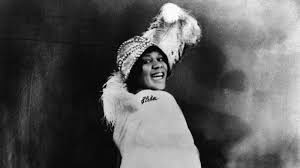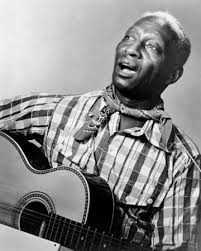Blues
How did it start?
Blues became commercialized 1914. Prior to that it started as work songs that would be created while black people were at work doing hard jobs such as working on railroads. They would make beats out of their work materials.Blues was constructed from church as well. The Call-Response that places its roots back in Africa was seen throughout Blues songs. Blues was the music of poor people singing about the hardships in their life. Blues was founded in Memphis and St. Louis. W.C. Handy was a black publisher that published blues songs. Blues talked about the here and now, the present times. Not the hope for things to come.
Commercialization of Blues
Blues gained more popularity as a genre as it was published. Race records were madly black eople for black people. In Blues black female underground artists were praised as queens and dressed glamorously. They positively represented the potential of black women at the time. Bessie Smith demanded 2,000 dollars per performance. Blues was recorded on wax records which aided in the spreading of it.
Threat to White People??
Black Male Performers were a threat to white performers. So when black men performed they had to paint their faces black and wear clown clothes to dehumanize them. They had to act like coons in order to perform. They could not be taken seriously. Black women were allowed to dress fancy, and act like themselves on stage.
Rediscovery Of the Blues
The Blues gained popularity again in the sixties, but under a different audience. White people discovered the blues in the 1960s during their hippie revolutions. Jubilee Quartet performed at Carnegie Hall in 1939, and Duke Ellington Also performed there.
Prison SOngs
Prisons were and still are a form of modern day slavery. Alan Lomax, who became obsessed with the preservation of prison songs traveled prisons across the United States. The blues to the prisoners was a form of expression for the sun up to sun down labor they faced everyday. Alan Lomax Discovered Huddy Ledbelly who became the poster boy for black men. This was because he was a convicted murderer and gave black men a dangerous image. Ledbellys audience was not black people, but the educated middle class white America that was fascinated with his bad reputation.
Popular Blues Artists
Ida Cox, Huddy Ledbelly, B.B. King, Bessie Smith, Perry Bradford, Countbasie, Muddy Water, and John Lee Hooker.



